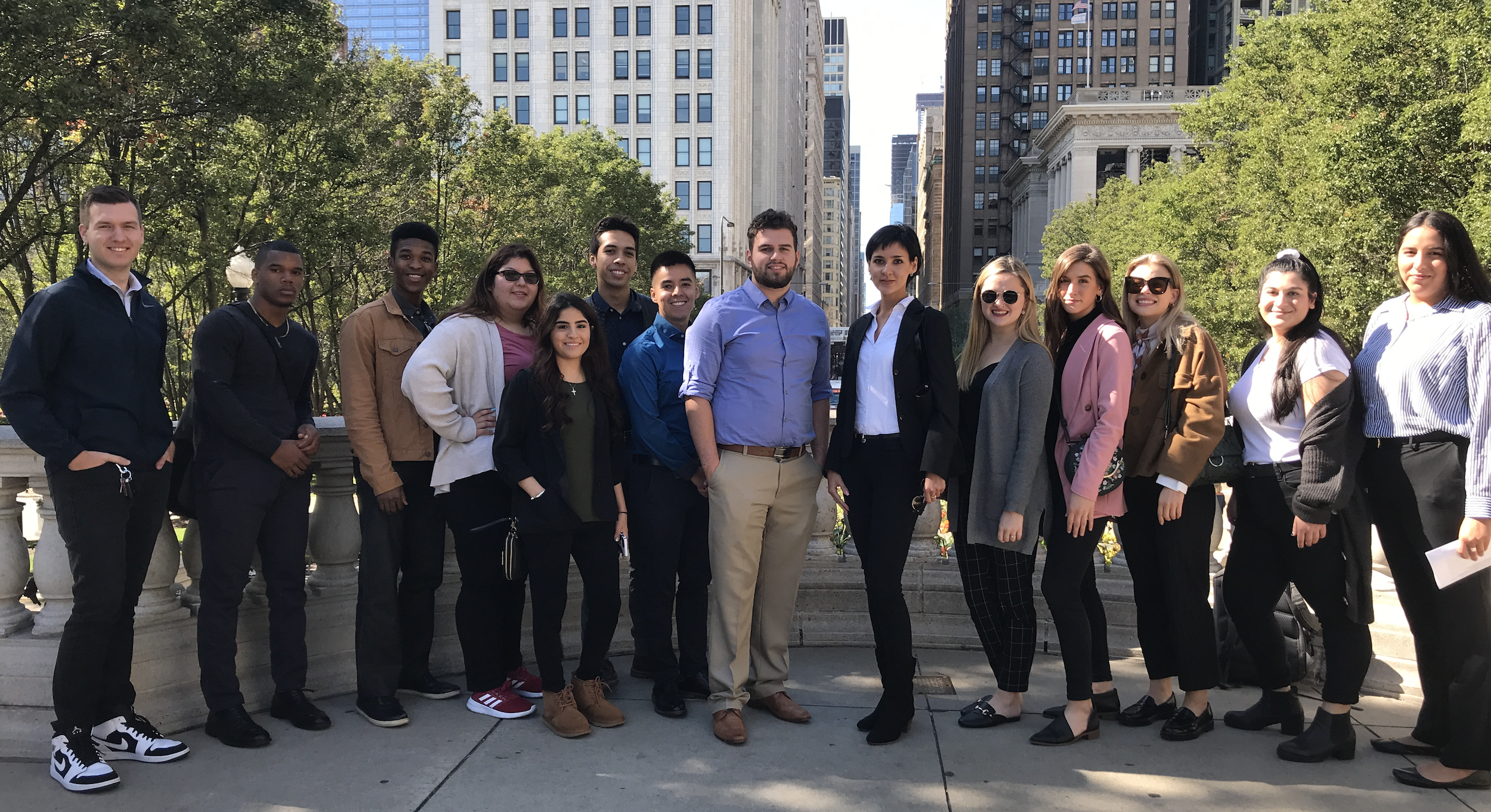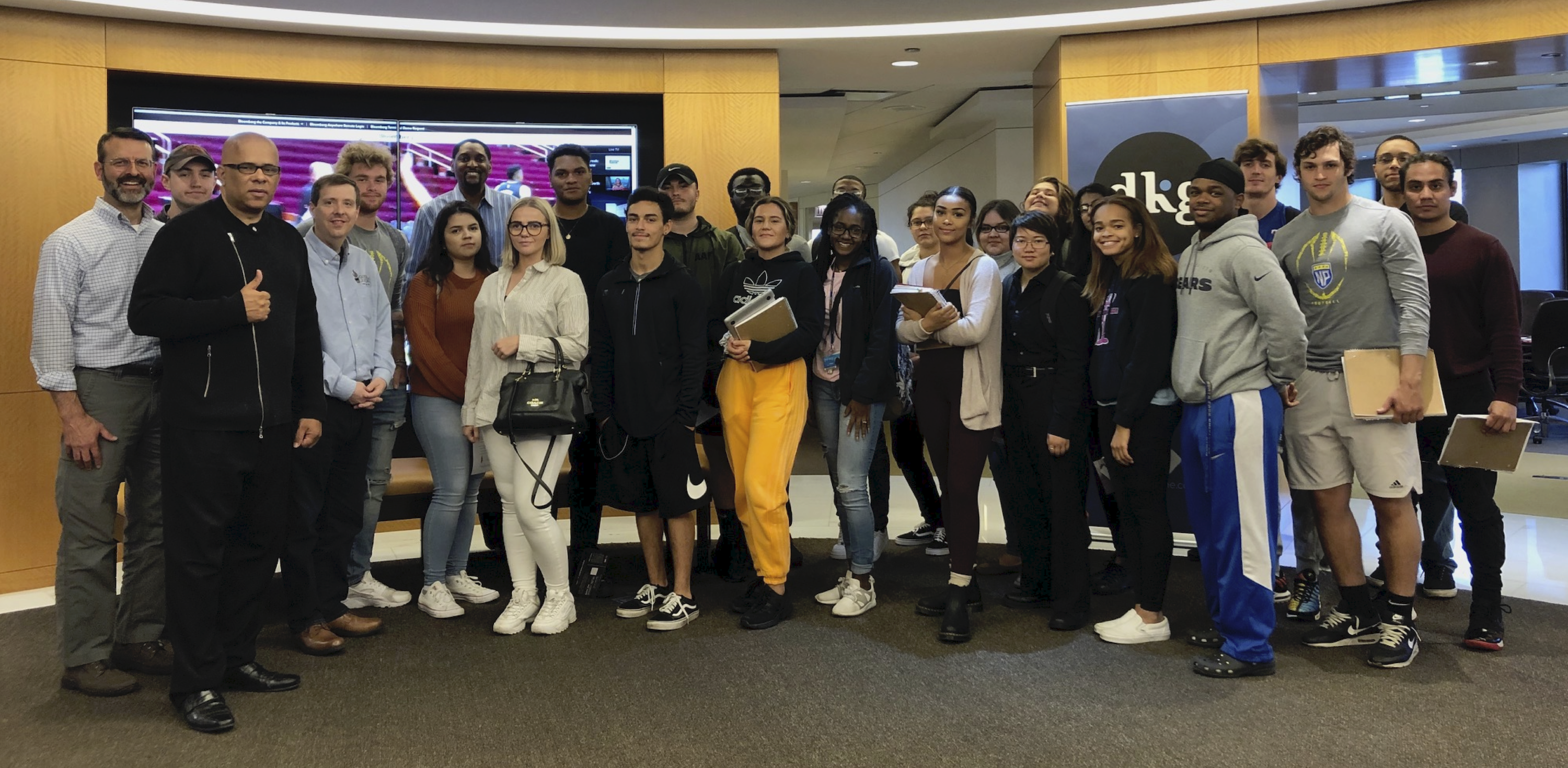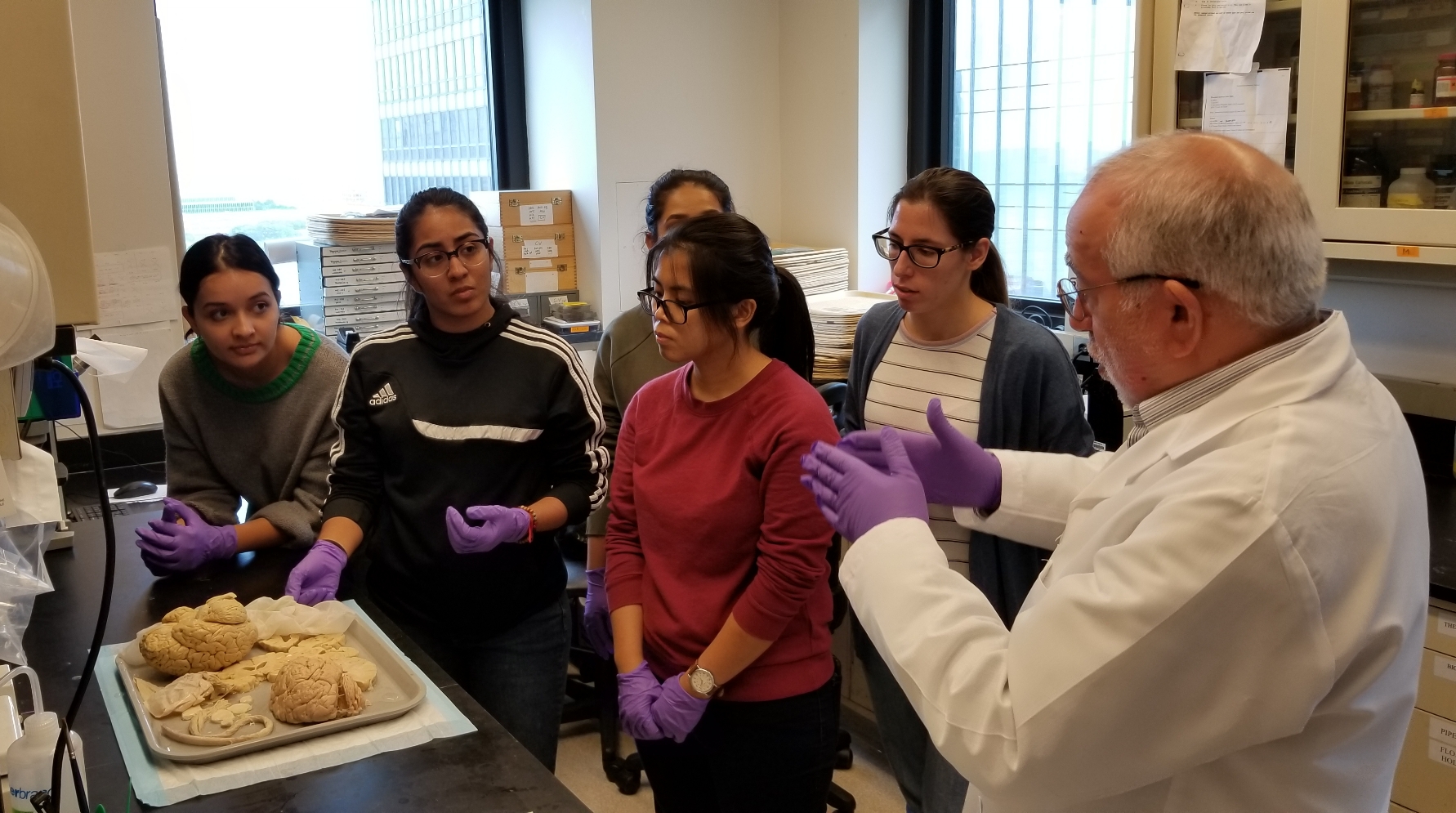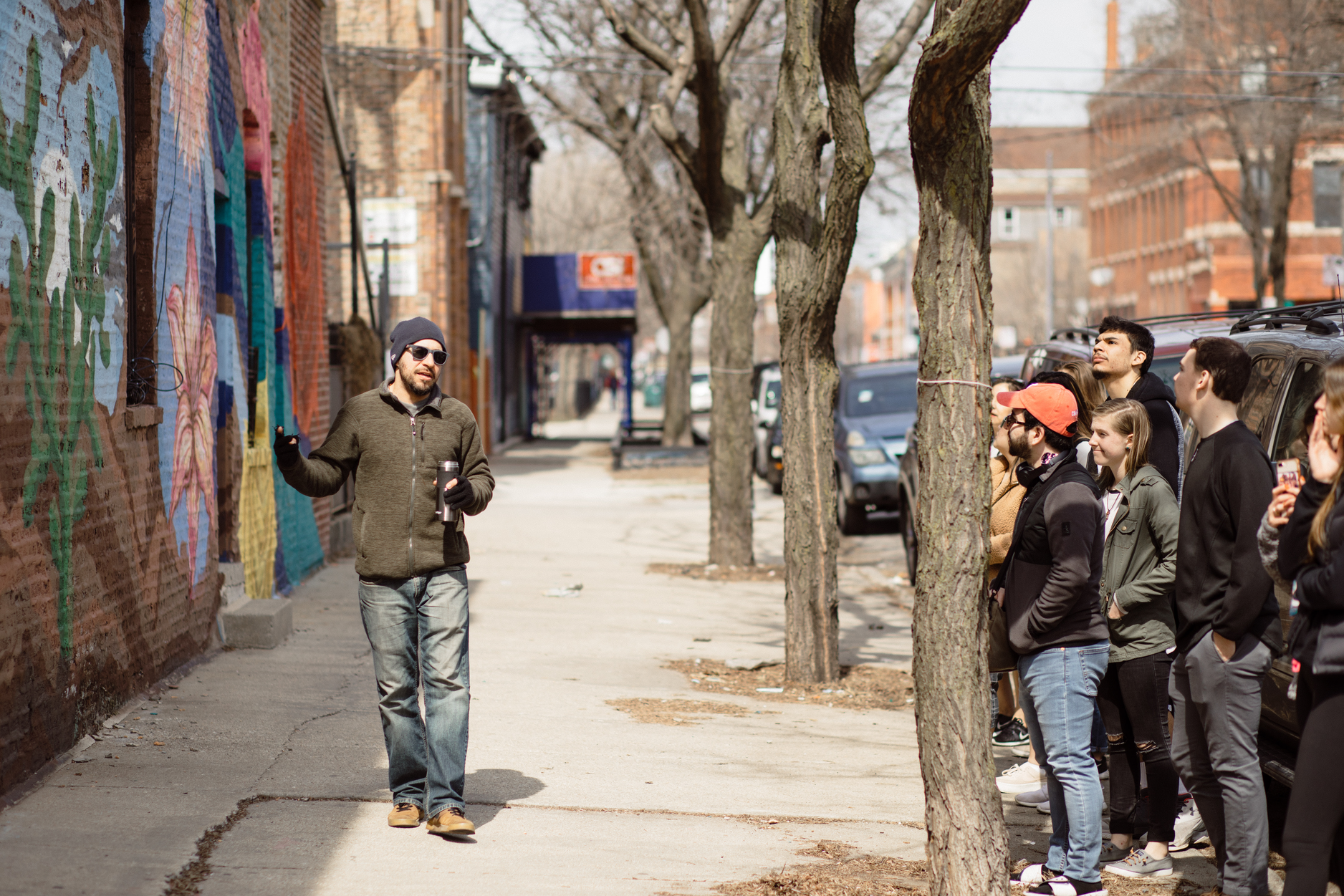Catalyst Courses
A Catalyst Course is an afternoon class that takes advantage of the open Wednesday afternoon built into the North Park schedule. Courses will utilize two Wednesday afternoons as an experiential learning opportunity throughout the semester. The afternoons are designed to allow enough time for students to travel to their Chicago destination and experience the city. Catalyst courses provide structure and support for students to apply the theory learned in the classroom with practice outside the classroom. Ample learning opportunities span the arts, sciences, nonprofits, ministries, businesses, and civic organizations.
Wednesday Afternoons
What’s learned in the textbook and the classroom extends into the city every Wednesday during the school year—in the very places where business, technology, art, theater, science, and social services all function. Dates and facts about the labor movement in a textbook come alive with visiting the Historic Pullman Foundation; finance becomes relevant while standing in Chicago’s downtown financial district; economics becomes tangible in touring a manufacturing company; and art and culture become eye-opening while touring the Art Institute.
Students will have the opportunity to connect these and many more subjects to the world around them. Along with their peers, students discuss and process their experiences together, develop a better understanding of options for their career path, derive inspiration to contribute to the community, and participate in their own learning experience making the connection between the theoretical and the practical.
Upon graduation, students will have explored and observed a range of businesses, intercultural settings, and community-based organizations, as well as engaged in lively conversation with their peers, professors, and professionals. By the time of graduation, students will develop a combination of soft and hard skills needed to be well-prepared to work and live in today’s cities carrying high expectations to collaborate, contribute, and solve complex problems.
Catalyst Course Schedule
If you are signed up for a course that meets at 12:40 p.m. or 2:30 p.m., you may have noticed on Self-Service that your course description has something called an “Activity Wednesday.” This means your course has the option of utilizing the Catalyst Wednesday block at least twice a semester.
You may be in more than one Catalyst course. If so, that’s not a problem. The Catalyst Wednesday sessions are scheduled based on the time a course is offered. This means your Catalyst Wednesday sessions will not conflict with one another, since you can’t take more than one class per time slot. The Catalyst Wednesday block for each course will take place on the following two Wednesdays of the semester between 11:40 a.m.–4:10 p.m.
| Catalyst block | Class Meeting Times | Weeks for Wednesday sessions |
| C1 | M–F 12:40–2:20 p.m. | Weeks 4 and 10 9/15 and 11/3 |
| C2 | M–F 2:30–4:10 p.m. | Weeks 5 and 11 9/22 and 11/10 |
| C3 | T–Th 12:40–2:20 p.m. | Weeks 6 and 12 9/29 and 11/17 |
| C4 | T–Th 2:30–4:10 p.m. | Weeks 6 and 14 10/6 and 12/1 |
Examples of Catalyst Course Sessions

BSE 2540: Business Communications
For this session, students traveled downtown to visit the Chicago Tribune Tower. Here, they spoke with a Pulitzer Prize-winning reporter, sat in on a private news briefing, and received a tour of this historic news building. Afterward, students debriefed over lunch, where they practiced having interviews in pairs.

SOC 2520: Criminal Justice
When learning about the criminal justice system in the United States, students in this Sociology course visited Administer Justice — an organization dedicated to serving the legal needs of the under-resourced in Chicago.

BIOL 3530: Neuroscience
In this science course, students had the opportunity to tour the brain bank and experimental laboratories at a Neurobehavior and Memory Clinic downtown. They heard firsthand how doctors research and study brains to learn about brain disorders and diseases, directly intersecting the students’ academic study and real-life practice.


